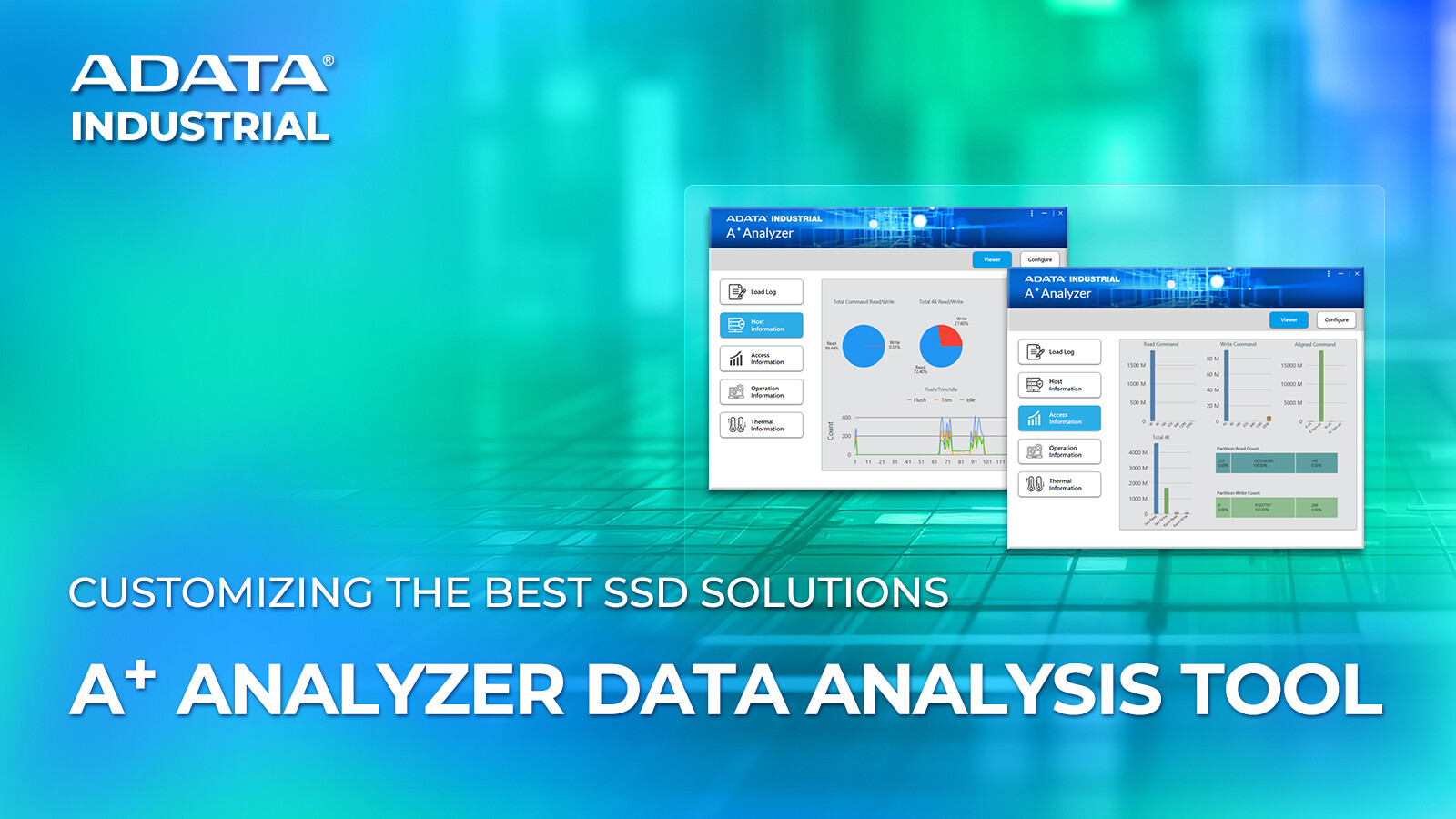ADATA Technology Releases "A+ Analyzer" Data Analysis Tool for Industrial-Grade Embedded Storage
ADATA Technology, a leading brand in industrial-grade embedded storage, has launched the "A+ Analyzer" data analysis tool. This tool incorporates technology developed by ADATA's independent R&D team, combining software and hardware to analyze user behavior. The goal of this innovative solution is to accurately depict terminal device usage behavior by collecting and analyzing customer host system data in-depth. This enables customers to select the most suitable SSD products.
Industry customers in fields such as transportation, medical care, automation, network communications, and security have diverse data patterns, write cycles, and SSD read/write requirements. The lifespan of flash memory decreases with each write cycle, making it crucial to understand the read/write behavior of specific applications. The ADATA "A+ Analyzer" tool addresses these challenges by analyzing customer behavior, providing personalized SSD selection recommendations, and offering customized firmware solutions based on different routines.
Key features of the ADATA "A+ Analyzer" data analysis tool include:
- Flexible recording: Users can easily toggle the recording function on or off through the "A+ Analyzer" tool, giving them control over data collection.
- Focus on details: Detailed information such as sequential/random read/write, average number of write cycles, power-down records, temperature monitoring, flush/trim/standby status, IDLE times, and split sector read/write status is provided.
- Long-term recording: A single recording can last up to 7 days (168 hours), meeting long-term monitoring needs.
- Instant analysis: Data can be exported and analyzed intuitively using the "A+ Analyzer" App at any time during the recording process.
- Broad compatibility: The tool supports specific SATA/NVMe SSDs.
The "A+ Analyzer" tool records the read/write behavior of the client host in the SSD, including read/write rates, workload, sequential write rate, and random access rate. By exporting relevant data and providing analysis, customers can gain insight into user behavior associated with SSDs. This helps in creating the best SSD solution reference and optimizing firmware to enhance the performance and service lifespan of SSDs.
